Cape Cod Times
Oct 25, 2017
Opposition to Sampsons project misplaced
The expertise of the Barnstable Clean Water Coalition and the Massachusetts Audubon Society is being called into question by a very small group of beachgoers who object to the removal of 400 feet of the western point of Sampsons Island. Their arguments are misplaced. The degradation of the point and channel affects both the birds and the beaches to the west, Loop and Riley’s.
The success rate of shorebird nesting sites here is miserable at best, and nonexistent lately. The point is the most exposed to the full variety of least tern and piping plover enemies: Nantucket Sound, which washes out nests; predatory birds, which lay waste to eggs and nestlings; and, finally, Homo sapiens, accompanied occasionally by the family dog, whose odor and proximity can be sensed. These sites are “killing fields” and do need to be removed to force the birds to go to safer nesting habitat. The Mass Audubon’s well-reasoned management plan will greatly improve the amount and success rate of prime nesting habitat elsewhere on the islands.
The removal of the point will improve the swimming. This was the most valuable section of Sampsons Island in the 1950s. But now, the weight of the sand at the point is extruding a foul-smelling sediment of undetermined origin. These sediments are degrading the area, even for the Barnstable Citizens Group (“Audubon, Three Bays must consider alternatives in Cotuit,” My View, Oct. 12), and must be removed. We heartily support efforts to identify this substance and have it promptly and efficiently removed!
The navigable channel must be restored for safety reasons. Swimmers interact at their peril with the boat traffic that is forced ever closer to Riley’s Beach by the spit’s growth and the flow of the tide here. We are fearful that, at any time, accidents between boats and swimmers will happen that would not if the harbor entrance were widened. The matter of safety here has been on the local civic association’s list of Cotuit concerns for annual meetings with the town manager and town department heads for as long as such meetings have been held.
Although widening the entrance will not have a great impact on lessening the nitrogen loading of Cotuit Bay, any improvement is a positive one. General water quality will be improved — even if only by a slight percentage. Commercial shellfish operations by Cotuit Oyster Co. and others are compromised by the narrowing entrance. An increased flow of water from Nantucket Sound will have a positive effect on their product and the entire bay. The proprietor supports this project wholeheartedly. The disturbance of sediment will be temporary and ephemeral.
All this shore is dynamic, and the sand is perfectly suitable — even as a temporary bulwark — against the erosion at the east side of Dead Neck. On the other hand, the recommendation to dredge the entire Cotuit channel is an excellent idea, one the town of Barnstable should rapidly pursue and then maintain. Why? Because to ensure attractive and successful nesting habitat, refreshing the south shore has to be a continual project. Moving the sand from the point of Sampsons Island is merely the beginning of an ongoing effort to maintain bird habitat of these bird sanctuaries. It’s time for the naysayers to stop their efforts to stall this project.
